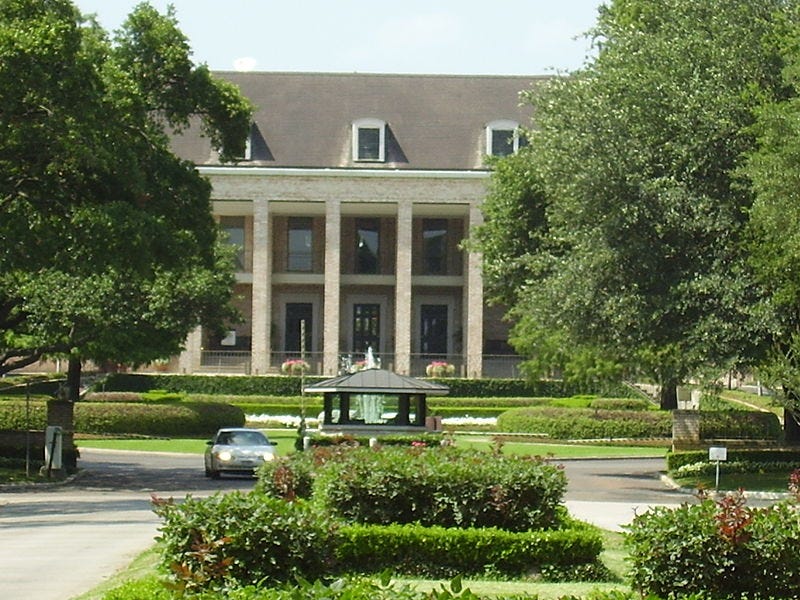Making the grade
doesn’t require what it used to
Two young men from the neighborhood stopped by to see me. Jake, our neighbour’s eldest son, and Frank, a slightly shy eighteen year-old from another ranch not too far from here approached the fence to give me some carrots. I could sense, though, that something was off. We horses have far better emotional intelligence than humans. Frank’s mien did not project joy as he said “I just don’t get it, why doesn’t any of them let me in? I solved differential equations at the age of twelve and yet I’ve submitted over fifty applications. All of these colleges write a polite ‘no’. What can I do, Jake? You just graduated from McGrath Law”. Jake replied: “Well, you’ll have to focus on other things than differential equations, dude.” “But I want to get into a math curriculum,” replied Frank angrily. Jake’s final response was a dry “it doesn’t matter.” Initially, neither I nor Frank understood where that came from, but gradually it started to dawn on me.
McGrath is the top rated university in the area, people say. It seems to be easy to verify that claim. They rank fifteenth on the “Shanghai list”, which spurs them to make the call that they offer the “best education” in the area and far beyond. Because of that reputation, students from around the world apply for a spot in McGrath’s auditoria, so they have to make a selection as to whom they let in. They will then claim that they first select based on “academic performance”, represented by a standardized test. As there are too many applicants who still perform well on the test, they then sift based on “extracurricular activities” and application essays. Now I wanted to know what all of this really implies.
(To read Wild Horse Wisdom is a great extracurricular activity. Consider subscribing!)
The Academic Ranking of World Universities, commonly known as the “Shanghai ranking”, was first launched with the intent to be able to compare the performance of nascent Chinese academic institutions with their established counterparts in the Western hemisphere. However, the ranking soon became accepted as a global point of reference to evaluate the quality of academic performance. At this point, we should stress that indeed academic performance is being assessed, which need not be a proxy for education. The Shanghai index is a weighted sum of the following topics, assessed by the corresponding metrics [1]:
For several of these criteria, it is highly questionable how they are related to education. There is a lot of stress on research output in this index. Yet anyone who has attended academic classes will know the following truth: universities who have Nobel laureates or highly cited researchers on staff will typically shield them from too much engagement in education. Therefore, these scientists might not teach any course at all, or if they do, only teach a very specialized subject to a handful of graduate students. The bottom line is that most students will barely get to see the top scientists in their college, if they meet them at all. Moreover, there can be cases where one may ask if the Nobel laureate has any impact on academic performance. Imagine, for example, a university to hire Yassar Arafat, a Nobel peace laureate, merely with the intention of obtaining a higher Shanghai ranking.
Similar observations can be made about other criteria in the Shanghai ranking system. Unfortunately, in the past few decades, academia has increasingly focused on volume rather than on quality. Back in 2005, Stanford professor John Ioannidis wrote a landmark paper titled “Why Most Published Research Findings Are False”. The paper was first to highlight that many publications considered “scientific” in fact do not fulfil the most essential tenet of science: the results in them cannot be reproduced by independent researchers. Based on what I am seeing, beyond bringing this crisis to our attention, Ioannidis’ paper has had no impact. There have been no structural changes into how academic research is being evaluated, the result of which is that still today a lot of junk science is being published in very respectable venues. Journals like Science and Nature are no exception to this and to make matters worse, such top ranked journals are more keen to accept submissions from top ranked institutions. Both thereby mutually create a self-fulfilling prophecy. The focus on volume rather than quality also pushes researchers to publish material that conforms to the hype of the day, as that leads to a higher likelihood of acceptance. It thusly disincentivizes critical thinking, creativity and out-of-the-box thinking, which is at the heart of the crises observed in today’s academic campuses.
Based on all of these observations, I really question if there is any connection between university rankings and the quality of education. Yet the institutions at the top of the list have every interest to further promote and advertise the rankings. The may well be aware themselves that the Shanghai ranking intrinsically has very little meaning to it, but they also know that the broader public believes it has significance. Some of them will go as far as to cheat on certain reporting criteria to maintain a high rating. These rankings are merely a façade to be able to pretend to offer the “best education”. If widely believed, students from all over will want to apply and then the universities can hand-pick the “best students”. And that, in itself, is equally questionable.
Frank might have been able to solve differential equations, but he didn’t need them to pass the standardized tests. In fact, the level of the standardized tests is purposefully set rather low, such that candidates with moderate skills can still get a high score if they put some effort to it. In some sense, standardized tests are better configured to test the skill of taking such multiple choice tests than to test the subject matter. The result then becomes that there are far more candidates who pass the test than the university can accept, so they have to look at “extracurricular activities” and application essays. For a long time, this meant the following: if a student who grew up in River Oaks Country Club applied at McGrath with a reference letter signed by George H.W. Bush, this student would be accepted. On the contrary, when Frank applied with a reference letter from “U Bar V Ranch”, praising his intelligence and work ethics, it had no impact.

So what does it take to graduate? Turns out, not that much. In fact, elite institutions like McGrath have an over 95% graduation rate. Here are some actual figures [2]:
Based on this table, it doesn’t seem to be too difficult to graduate once accepted. What is difficult, is to be selected to attend. Of course, the latter is not difficult at all for a student with the “right” reference letters. Unless they decide to drop out or they flagrantly underperform, they are almost certain to graduate (albeit not necessarily with the highest GPA). Once graduated, they will be recruited by top corporations because of their pedigree from one of the “best universities”. They will proceed to have an astronomic career as the human resources department in the respective corporation will detect them as “high potentials” and put them on a fast track for promotion into the upper ranks. These students then become the captains of industry who exemplify the meritocracy in which the most effective merit is to have been born in the right place.
Reference letters have been an unfair discriminator for a long time and they still are. However, what Frank didn’t know, is that recently there has been another confounder. It turns out that the Confucius Institute, one of the Chinese Communist Party’s investment vehicles, had granted McGrath an endowment of 700 million dollars, officially with no strings attached. Only the result seemed to be that the university started to adopt what very much looked like a “party line” of permitted opinions and began to punish dissent. By consequence, they commenced to screen for students with “correct” opinions and would continue to do so for the entire time until they graduated. Rather than doing away with unfair discriminating criteria and creating a level playing field of opportunity, it seems that higher education has been compounding unfair discrimination criteria instead. Prospective students whose references were not as overwhelming as a former president could now compensate by writing a good application essay, where “good” corresponds to the right (left?) opinions.
(If you agree that today’s society is mired in confusion between what is left and what is right, you may check out some earlier pony wisdom and subscribe).
After a few minutes of silence, Frank and Jake continued their chat. “So how did you get in?” asked Frank. Jake replied: “I was a quarterback on the school football team and I got a reference letter from the Mayor. But that wasn’t all. I put a lot of effort into writing my application letter. The most important piece in it was that I described my will to become a role model in society.”
“What is a role model?” Frank wanted to know. “Well, I stated that if I could, I’d aspire to be the first three hundred and fifty pound black Latino trans Hamas fighter in the Azov batallion, already plagued by diabetes, but still convinced that fat phobia should get the death penalty. At the beginning of every course, I introduced myself as having pronouns “xim/xir” and repeated my unattainable ideal. I got straight As. I can now legally defend our ranch in court as an attorney who graduated from the ‘most difficult’ college in the area!”.
“But do you believe any of that?” Frank wanted to know. Jake’s reply was trite: “No, but it was scary to see how many people at McGrath did. The faculty were into it most of all”.
Fortunately for Frank, not all is lost. And we horses are always going to be there to bring solace.
(If you thought there’d be no horse pictures this time, you'd be mistaken. There’s good ones each time and they are a reason to subscribe!)
[1] https://en.wikipedia.org/wiki/Academic_Ranking_of_World_Universities
[2] https://www.bankrate.com/loans/student-loans/college-graduation-statistics/#school





Now you know the truth about the Vietnam era, a most tumultuous time in the lives of the unprecedented mass groupthink Boomers in the 1960’s and 70’s. The Marxists rooted Communists in the woodwork of America’s elite universities taking advantage of the confusion they created with the help of the antagonist Alinsky’s (cheat sheet), rules for radicles. Marxism became very popular on campus, filtering it down through tiered colleges, high schools and on to kitchen tables. They hijacked the protests against Congress turning it into a hate America “anti war movement” that hated anyone in uniform, cops, fireman, mailman, and especially their own generational weary veterans. They made Ho Chi Minh a “poor ole revolutionary hero”, when China’s PLA (CCP) and Russian (USSR) logistics and armament were the real elephants in that war room.
Communist propaganda at the highest level is still propaganda, made for weak minds and cowards. Now, six decades later we see the results as those same elite Boomers and their offspring did in deed “marched through the institutions”(Gramsci) and government, and are today at the helm of all things American demise. Cowards.